Art Tatum – Gershwin – The Man I Love (Piano) with sheet music
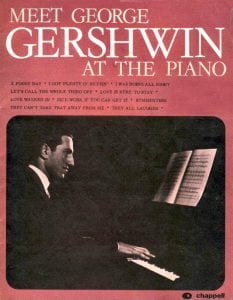
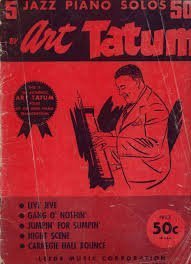
Art Tatum
Arthur Tatum Jr. (October 13, 1909 – November 5, 1956) was an American jazz pianist who is widely regarded as one of the greatest in his field.
Tatum grew up in Toledo, Ohio, where he began playing piano professionally and had his own radio program, rebroadcast nationwide, while still in his teens. He left Toledo in 1932 and had residencies as a solo pianist at clubs in major urban centers including New York, Chicago, and Los Angeles. Throughout his career, Tatum also played in after-hours venues at which he was said to be more spontaneous and creative than in his regular paid performances.
Art Tatum drank large quantities of alcohol when performing; although it did not negatively affect his playing, it damaged his health. In the 1940s, Tatum led a commercially successful trio for a short time and began playing in more formal jazz concert settings, including at Norman Granz-produced Jazz at the Philharmonic events. Granz recorded Tatum extensively in solo and small group formats in the mid-1950s, with the last session occurring only two months before the pianist’s death from uremia at the age of 47.
His playing encompassed the styles of earlier musicians, while adding harmonic and rhythmic imagination and complexity. Acclaimed for his virtuoso technique, Tatum extended the vocabulary and boundaries of jazz piano, and established new ground in jazz through innovative use of reharmonization, voicing, and bitonality.
Style and technique
Saxophonist Benny Green wrote that Tatum was the only jazz musician to “attempt to conceive a style based upon all styles, to master the mannerisms of all schools, and then synthesize those into something personal”. Tatum was able to transform the styles of preceding jazz piano through virtuosity: where other pianists had employed repetitive rhythmic patterns and relatively simple decoration, he created “harmonic sweeps of colour unpredictable and ever-changing shifts of rhythm.”
Musicologist Lewis Porter identified three aspects of Tatum’s playing that a casual listener might miss: the dissonance in his chords; his advanced use of substitute chord progressions; and his occasional use of bitonality (playing in two keys at the same time). There are examples on record of the last of these going back to 1934, making Tatum the farthest harmonically out of jazz musicians until Lennie Tristano.
On occasion, the bitonality was against what another musician was playing, as in “Lonesome Graveyard Blues” with guitarist Oscar Moore. Prior to Tatum, jazz harmony was mainly triadic, with flattened sevenths and infrequent ninths; he went beyond this, influenced by the harmonies of Debussy and Ravel. He incorporated upper intervals such as elevenths and thirteenths, and added tenths (and greater intervals) to the left-hand vocabulary of the earlier stride piano style.
Tatum had a different way of improvising from what is typical in modern jazz. He did not try to create new melodic lines over a harmonic progression; instead, he implied or played the original melody or fragments of it, while superimposing countermelodies and new phrases to create new structures based around variation. “The harmonic lines may be altered, reworked or rhythmically rephrased for moments at a time, but they are still the base underneath Tatum’s superstructures. The melodic lines may be transformed into fresh shapes with only a note or a beat or a phrase particle retained to associate the new with the original, yet the melody remains, if only in the listener’s imagination.”
This flexibility extended to his use of rhythm: he employed “ever-changing combinations of notes per beat even in the most rapid passages. He could apply different variation techniques simultaneously, and used subtle rhythmic intensification and relaxation to give clear identity and shape to his phrases.” His rhythmic sense allowed him to move away from the established tempo of a piece for extended periods without losing the beat.
For critic Martin Williams, there was also the matter of the pianist’s sly humor when playing: “when we fear he is reaching the limits of romantic bombast, a quirky phrase, an exaggerated ornament will remind us that Tatum may be having us on. He is also inviting us to share the joke and heartily kidding himself as well as the concert hall traditions to which he alludes.”
Prior to the 1940s, Tatum’s style was based on popular song form, which often meant two bars of melodic development followed by two more melodically static bars, which he filled with rapid runs or arpeggios.From the 1940s, he progressively lengthened the runs to eight or more bars, sometimes continuing them across the natural eight-bar boundaries within a composition’s structure, and began to use a harder, more aggressive attack.
He also increased the frequency of harmonic substitutions and the variety of musical devices played by his left hand, and developed a greater harmonic and contrapuntal balance across the piano’s upper and lower registers. Schuller argues that Tatum was still developing towards the end of his life – he had greater rhythmic flexibility when playing at a given tempo, more behind the beat swing, more diverse forms of expression, and he employed far fewer musical quotations than earlier in his career.
Critic Whitney Balliett commented on the overall form of Tatum’s style: “his strange, multiplied chords, still largely unmatched by his followers, his laying on of two and three and four melodic levels at once was orchestral and even symphonic.” This style was not one that could be adapted to the form of bebop: “the orchestral approach to the keyboard was too thick, too textured to work in the context of a bebop rhythm section.”
Tatum’s approach has also been criticized on other grounds: pianist Keith Jarrett objected to Tatum playing too many notes, and others have commented that Tatum often did not modify his playing when in a band.
A general criticism of him in a group setting was that he overwhelmed the other musicians, and appeared to compete with any soloist that he was ostensibly supporting. Clarinetist Buddy DeFranco said that playing with Tatum was “like chasing a train”, and the pianist himself said that a band got in his way.

A screen capture from the 1947 film The Fabulous Dorseys, showing Tatum’s straight-fingered technique
Tatum was serious at the keyboard, not attempting crowd-pleasing gestures, and he maintained a calm demeanor.This accentuated the impact of his playing on observers, as did his seemingly effortless technique, as fellow pianist Hank Jones observed – the apparently horizontal gliding of his hands across the keys stunned his contemporaries Tatum’s relatively straight-fingered technique, compared to the curvature taught in classical training, contributed to this visual impression: a critic wrote in 1935 that, when playing, “Tatum’s hand is almost perfectly horizontal, and his fingers seem to actuate around a horizontal line drawn from wrist to finger tip.”
Tatum was able to use his thumbs and little fingers to add melody lines while playing something else with his other fingers; drummer Bill Douglass, who played with Tatum, commented that the pianist would “do runs with these two fingers up here and then the other two fingers of the same hand playing something else down there. Two fingers on the black keys, and then the other two fingers would be playing something else on the white keys. He could do that in either hand”.
His large hands allowed him to play a left-hand trill with thumb and forefinger while also using his little finger to play a note an octave lower. He was also capable of reaching twelfth intervals in either hand, and could play a succession of chords such as the illustrated examples at high speed.He also had a strong sense of time and was able to play any of his chosen material in any key.

Examples of chords played by Tatum that “were easy for him to reach”
Tatum’s touch has also attracted attention: for Balliett, “No pianist has ever hit notes more beautifully. Each one was light and complete and resonant, like the letters on a finely printed page. Vast lower-register chords were unblurred, and his highest notes were polished silver.”Tatum could maintain these qualities of touch and tone even at the quickest tempos, when almost all other pianists would be incapable of playing the notes at all. Pianist Chick Corea commented that “Tatum is the only pianist I know of before Bill [Evans] that also had that feather-light touch – even though he probably spent his early years playing on really bad instruments.”
Among the musicians who said that Tatum could make a bad piano sound good were Billy Taylor and Gerald Wiggin The latter revealed that Tatum was able to identify and avoid using any keys on a bad piano that were not working, while guitarist Les Paul recounted that Tatum sometimes resorted to pulling up stuck keys with one hand, mid-performance, so that he could play them again.
Influence
Tatum’s improvisational style extended what was possible on jazz piano. The virtuoso solo aspects of Tatum’s style were taken on by pianists such as Adam Makowicz, Simon Nabatov, Oscar Peterson, and Martial Solal. Even “musicians of radically different outlook, such as Bud Powell, Lennie Tristano and Herbie Hancock, learnt key Tatum performances by rote, though few could compass his technical range or re-create his inimitable, plush tone.” Although Powell was of the bebop movement, his prolific and exciting style showed Tatum’s influence.Mary Lou Williams said, “Tatum taught me how to hit my notes, how to control them without using pedals. And he showed me how to keep my fingers flat on the keys to get that clean tone.”
Tatum’s influence went beyond the piano, however: his innovations in harmony and rhythm established new ground in jazz more broadly. He made jazz musicians more aware of harmonic possibilities by changing the chords that he used with great frequency; this helped lay the foundations for the emergence of bebop in the 1940s. He also pioneered modern chord voicing and chord substitution in jazz.
Browse in the Library:
| Artist or Composer / Score name | Cover | List of Contents |
|---|---|---|
| Autum Song (October) – Tchaikovsky The Seasons (Musescore File).mscz | ||
| Autumn In New York (Guitar Arr. With Tab) | Autumn In New York (Guitar Arr. With Tab) | |
| Autumn In New York (Guitar Arr.) (Musescore File).mscz | ||
| Autumn Leaves Joseph Kosma Jazz Standard Piano Solo arr |
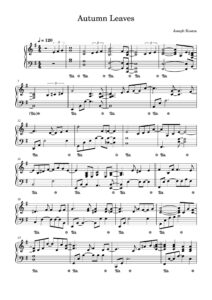 |
|
| Autumn Leaves Joseph Kosma Jazz Standard Piano Solo arr.mscz | ||
| Autumn Leaves Piano Bar Arr. Johnny Mercer Joseph Kosma Jacques André Marie Prévert | Autumn Leaves Piano Bar Arr. Johnny Mercer Joseph Kosma Jacques André Marie Prévert | |
| Autumn Leaves – Jazz Play Along LEAD SHEET MUSIC |
 |
Audio MP3 included in Aebersold’s Vol. 44 (Autumn Leaves) |
| Autumn Leaves – Piano Bar Arr. Johnny Mercer Joseph Kosma Jacques André Marie Prévert (Musescore File).mscz | ||
| Autumn leaves (Eva Cassidy) | ||
| Autumn Leaves As Played By Bill Evans (Musescore File).mscz | ||
| Autumn Leaves Cannonball Adderley And Miles Davis Sax Alto |
 |
|
| Autumn Leaves Music by Joseph Kosma |
 |
|
| Autumn Leaves Piano Solo – as played by Hank Jones.mscz | ||
| Autunm Leaves (Musescore File).mscz | ||
| Avatar – Leona Lewis – I See You |
|
Avatar I see you |
| Avatar sheet music Book James Horner |
|
Avatar |
| Ave Maria (Joyeux Noël OST) Philippe Rombi | ||
| Avenged Sevenfold Nightmare Guitar TAB |
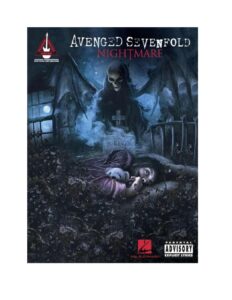 |
Avenged Sevenfold Nightmare Guitar TAB |
| Avenue Q The Musical Songbook |
 |
Avenue Q The Musical Songbook |
| Avicii – Wake Me Up Sheet Music Piano Vocal Guitar chords |
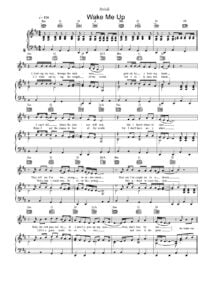 |
|
| Avishai Cohen Songbook Vol I |
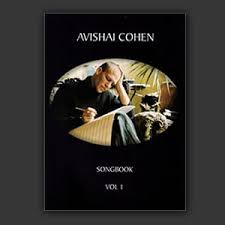 |
Avishai Cohen Songbook Vol I  |
| Avril Lavigne – Complicated | ||
| Avril Lavigne – Freak Out | ||
| Avril Lavigne – Im With You | ||
| Avril Lavigne – Innocence | ||
| Avril Lavigne – My Happy Ending | ||
| Avril Lavigne – When Youre Gone | ||
| Avril Lavigne – Why | ||
| Avril Lavigne the Best Damn Thing Songbook |
 |
Avril Lavigne the Best Damn Thing Songbook |
| Avril Lavigne Under My Skin |
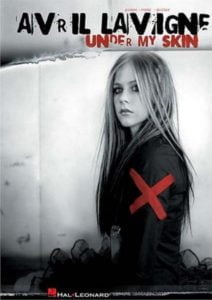 |
Avril Lavigne Under My Skin |
| Awaken (Jane Eyre OST 2011) Dario Marianelli | ||
| Awakenings Dexter’s Tune by Randy Newman |
 |
|
| Away In A Manger – Guitar TABlature |
 |
|
| Axel F from Beverly Hills Cop b Harold Faltermeyer Piano Vocal Guitar Chords sheet music |
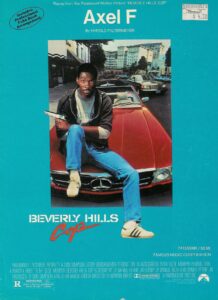 |
|
| Axel Jorgensen ROMANCE for Trombone and Piano Op. 21 |
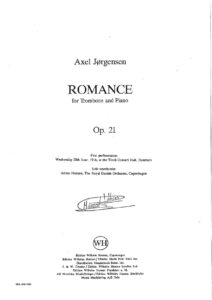 |
|
| Aya Hirano – God Knows Suzumiya Haruhi no Yuutsu OST Piano Solo |
 |
|
| Ayumi Hamasaki – Voyage | Ayumi Hamasaki – Voyage | |
| Ayumi Hamasaki All In | Ayumi Hamasaki All In | |
| Aziza Mustafa Zadeh Always Sheet Music |
 |
|
| Aziza Mustafa Zadeh Holiday Blessings |
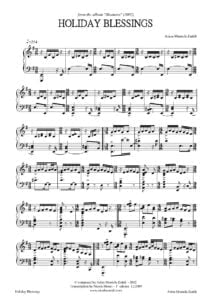 |
|
| Aziza Mustafa Zadeh Strange Mood |
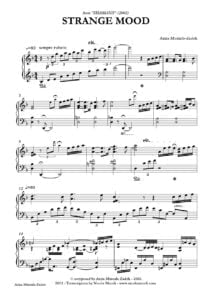 |
|
| Aziza Mustafa Zadeh – Dreaming Sheherezadeh |
 |
|
| Aziza Mustafa Zadeh – Melancholic Princess |
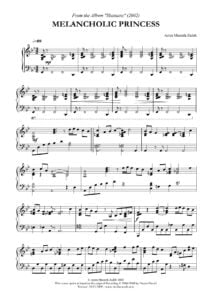 |
|
| Aziza Mustafa Zadeh – Barabashka |
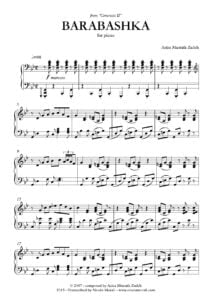 |
|
| Aziza Mustafa Zadeh Two Candles |
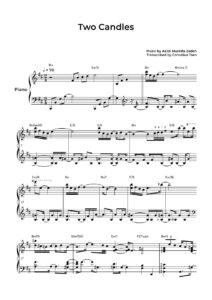 |
|
| B Witched – Cest La Vie | ||
| B Witched – Rollercoaster | ||
| B. B. King Live At The Regal Guitar TAB |
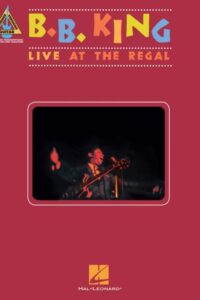 |
B. B. King Live At The Regal Guitar TAB |
| B.B. King Anthology Guitar TAB |
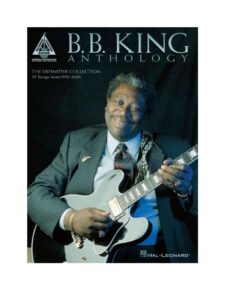 |
B.B. King Anthology Guitar TAB |
| B.B. King Greatest Hits |
 |
B.B. King Greatest Hits |
| B.B. King Guitar Play Along Vol. 100 – with MP3 audio embedded with Tablature |
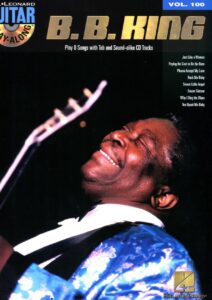 |
Guitar Play Along Vol. 100 – B.B. King |
| B.B. King The Definitive Collection Guitar Signature Licks with TABs By Wolf Marshall |
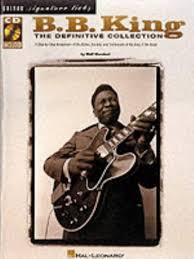 |
B.B. King The Definitive Collection Guitar Signature Licks By Wolf Marshall_compressed |
| Baby Elephant Walk (Hatari OST) Henry Mancini | ||
| Baby Elephant Walk Mancini (Musescore File).mscz | ||
| Babyface, The Songs Of (Kenneth Brian Edmonds) |
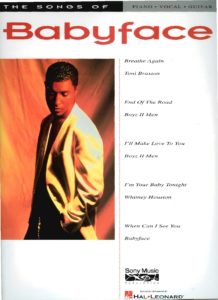 |
Babyface, The Songs Of (Kenneth Brian Edmonds) |
| Bach – Jesu Bleibet Meine Freude Guitar arr.mscz | ||
| Bach – Siciliano In G Minor (Musescore File).mscz | ||
| Bach – Siciliano in G minor Piano solo (Intermediate) |
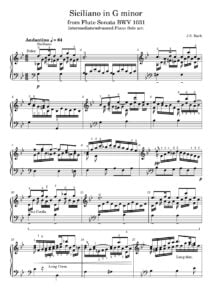 |
|
| Bach J.S. – Aria Mit Variationen Goldberg Variationen Bwv 988 Mit Noten – Sheet Music (Musescore File).mscz | ||
| Bach J.S. – Orchestral Suite No. 1 In C Major Bwv 1066 Passepied (Easy Piano Solo) (Musescore File).mscz | ||
| Bach J.S. For Bass Guitar Mel May Publications |
 |
|
| Bach – Analysis of J.S. Bach’s Wohltemperirtes clavier (48 preludes & fugues) ( Book ) Riemann |
 |
|
| Bach – Arioso (Musescore File).mscz | ||
| Bach – Cello Suite No. 1 In G Major Bwv 1007 Arr. Guitar (Musescore File).mscz | ||
| Bach – Chaconne Bwv 1004 Guitar Arr. (Musescore File).mscz | ||
| Bach – Easy Pieces for Classical Guitar – Notes & Tablature |
 |
Bach – Easy Pieces pieces for guitar |
| Bach – Kurtag – Transcriptions for piano four hands |
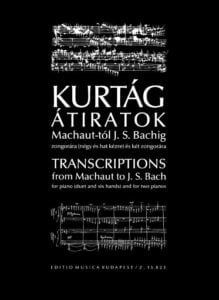 |
|
| Bach – Masterworks of Johann Sebastian Bach ( Book) |
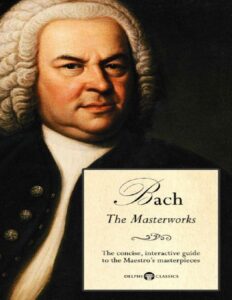 |
|
| Bach – Music in the Castle of Heaven by John Eliot Gardiner (Book) |
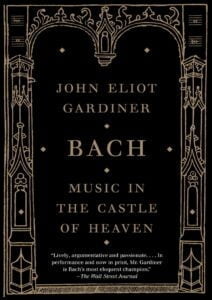 |
|
| Bach – Praeludium Et Fuga In D Bwv 539 Piano Solo (Musescore File).mscz | ||
| Bach – Prelude And Fugue In A Minor (Bwv 543) (Musescore File).mscz | ||
| Bach – Sheep May Safely Graze (Schafe Könen Sicher Beiden) Aria From The Cantata Bwv 208 Easy Piano |
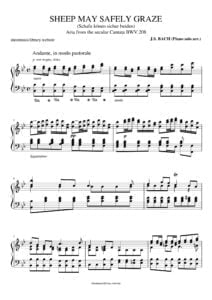 |
|
| Bach – Siciliano (Easy Piano arr. from Flute Sonata BWV 1031 with sheet music) |
 |
|
| Bach – Siciliano (Easy Piano Arr. From Flute Sonata Bwv 1031 With Sheet Music) (Musescore File).mscz | ||
| Bach A Life In Music by Peter Williams (2006) Biography Book |
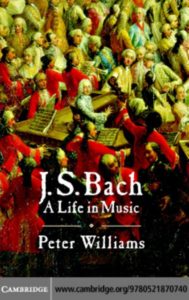 |
|
| Bach Baden Powell Jesus Bleibet Meine Freude Guitar Tablature Tabs |
 |
|
| Bach Bourée (Piano Solo) Jethro Tull (Musescore File).mscz | ||
| Bach Busoni Complete Transcriptions |
 |
Bach Busoni Complete Transcriptions |
| Bach Bwv 22 – Sanctify Us By Thy Goodness Piano Arr. Harriet Cohen (Musescore File).mscz | ||
| Bach Cello Suite No. 1 In G Major For Guitar (Musescore File).mscz | ||
| Bach Chaconne BWV 1004 Abel Carlevaro Guitar Masterclass IV |
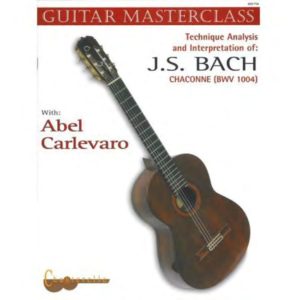 |
|
| Bach Chaconne D minor arr. for guitar |
 |
|
| Bach Forty Chorales Arr. For Piano Solo |
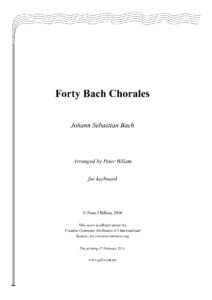 |
|
| Bach Fugue In G Minor Bwv 578 (Piano Solo) (Musescore File).mscz | ||
| Bach Fugue Iv Bwv 849 Wtc I (With Sheet Music Noten) (Musescore File).mscz | ||
| Bach Goedicke – Prelude Fugue BWV 539 transcribed for piano |
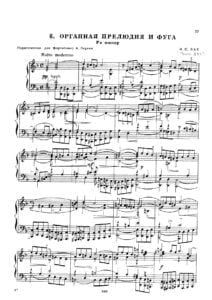 |
|
| Bach Gounod Prelude 1 Ave Maria Jazz Improvisation |
 |
|
| Bach Guitar – Fingerpicking Bach (with Tablature) |
 |
Bach Guitar – Fingerpicking Bach |
| Bach J.S. J.S. – French Suites (I to VI) |
 |
|
| Bach J.S. JS – BWV 208 – Sheep May Safely Graze (arr Friedman) | BACH JS BWV 208 | |
| Bach J.S. Air from Orchestral Suite no. 3 in D Major (trans. D. Weymouth) | Bach J.S. -Air-Weymouth | |
| Bach J.S. Jesu, Joy of Man’s Desiring – Piano Arr Groban, Josh |
 |
|
| Bach J.S. – Jazz Play Along Vol. 120 Pdf + Mp3 Audio Tracks |
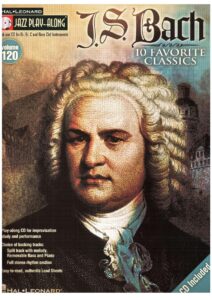 |
Jazz_Play_Along_Vol_120_-_J_S_Bach |
| Bach J.S. – Air on a G String |
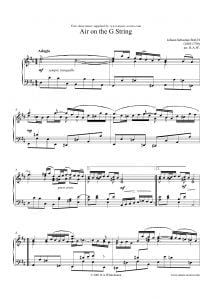 |
|
| Bach J.S. – Busoni Chaconne (piano solo arr.) |
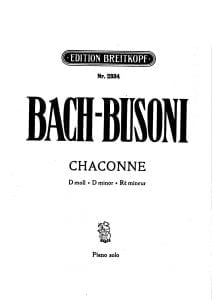 |
|
| Bach J.S. – BWV 565 Piano – Toccata E Fuga In Re Min | Bach – Bwv 565 Piano – Toccata E Fuga In Re Min | |
| Bach J.S. – Cantata BWV 147 – Coral ‘Jesus Bleibet Meine Freude’ (Easy Piano Solo) | Bach Jesu Joy Of Mans Desiring Cantata Bwv.147 Piano Solo Page 1 Of 5 | |
| Bach J.S. – Das Wohltemperierte Klavier HENLE VERLAG |
 |
|
| Bach J.S. – Easy Pieces for Classical Guitar – Notes & Tablature |
 |
Bach – Easy Pieces pieces for guitar |
| Bach J.S. – English Suites Inglesi (piano) BWV 806-811 |
 |
|
| Bach J.S. – Nun komm, der Heiden Heiland, BWV 659 | Bach, J.S. – Nun komm, der Heiden Heiland, BWV 659 | |
| Bach J.S. – Toccata and Fugue in D minor BWV565 (Piano solo arr. Grainger) |
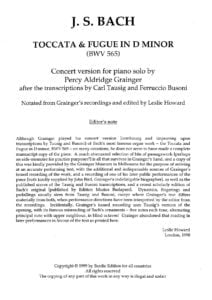 |
|
| Bach J.S. – Two Part Inventions Busoni |
 |
|
| Bach J.S. – Well-Tempered Klavier Analysis Part II Dr. H. Riemann |
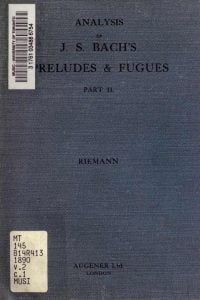 |
|
| Bach J.S. – Wilhelm Kempff 10 Bach Transcriptions for piano |
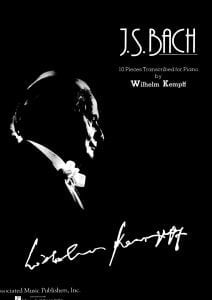 |
Kempff – 10 Bach Transcriptions |
| Bach J.S. (H Bauer) – Corale Dalla Cantata no. 147 “Jesu, Joy of man’s desiring” BWV 7 (Piano Solo) |
 |
|
| Bach J.S. (Marcello) – BWV 974 -Adagio | Bach (Marcelo) – BWV 974 -Adagio | |
| Bach J.S. 12 Small Preludes |
 |
|
| Bach J.S. 15 Three-voice Inventions |
 |
|
| Bach J.S. 15 Two part Inventions Pure Text Ed. Allan Peterson |
 |
|
| Bach J.S. 6 Partitas( I to VI) |
 |
|
| Bach J.S. AIR ON THE G STRING ARR. SILOTI |
 |
|
| Bach J.S. ARIA SUITE EN RE (arr. for 2 PIANOS) | Bach ARIA SUITE EN RE 2 PIANOS | |
| BACH J.S. Art Fugue Die Kunst der Fuge (Ed. Czerny ) BWV 1080 |
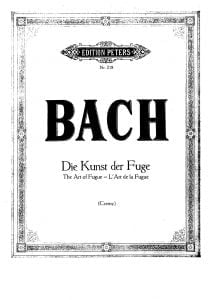 |
|
| Bach J.S. Art Of Fugue Czerny (Ed. Kalmus) BWV 1080 |
 |
|
| Bach J.S. Busoni BWV564 | ||
| Bach J.S. BWV 1055 keyborad concerto n 4 | ||
| Bach J.S. BWV 971 Italian Concerto | ||
| Bach J.S. Cantata 147 arr. for Easy piano solo | Bach-Jesu-Joy-of-Mans-Desiring-Cantata-BWV.147-Piano-Solo | |
| BACH J.S. CANTATA 22 ARR. PIANO SANCTIFY US BY THY GOODNESS arr. by Harried Cohen |
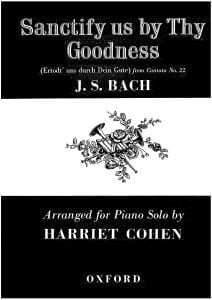 |
